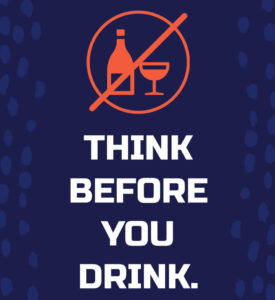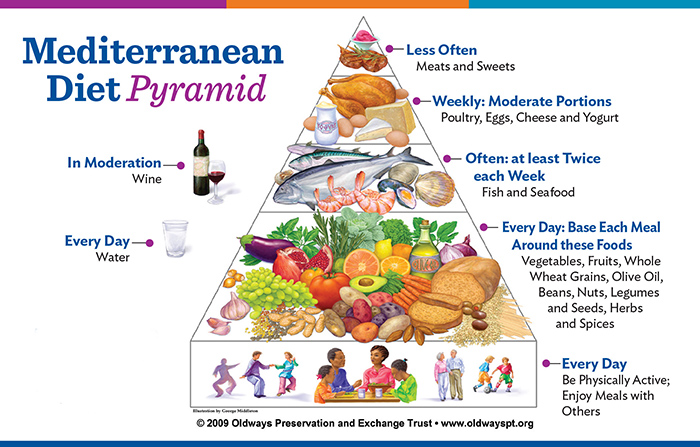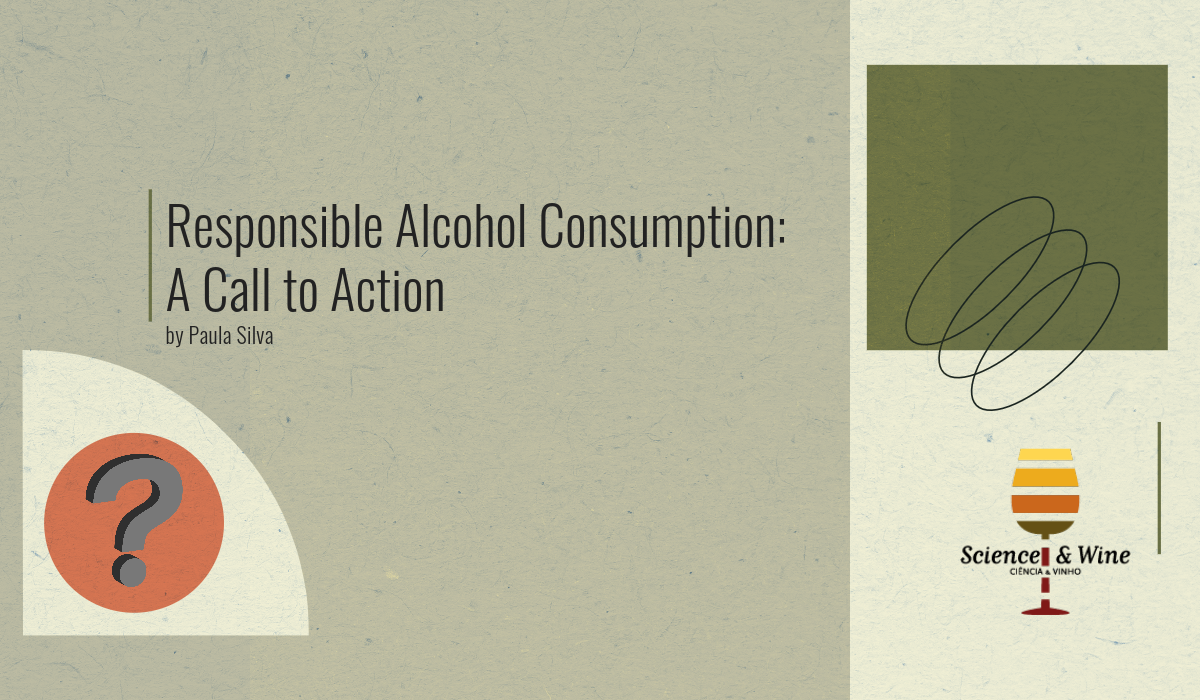By Paula Silva
A recent article in Expresso, a Portuguese weekly newspaper highlights a study titled “Health and Cancer Risks Associated with Low Levels of Alcohol Consumption” It is important to clarify that this is a commentary published in The Lancet, is not an original research endeavour or the result of an exhaustive systematic literature review. We all agree that no one should initiate alcohol consumption because the harms of doing so always outweigh the benefits, regardless of the type of alcoholic beverage in question. Therefore, campaigns promoting and educating against alcohol consumption are of utmost importance and should be conducted across all age groups, particularly among the younger population. These campaigns should include various strategies. Firstly, educational lectures can be held in schools to inform students about the dangers of alcohol, its health effects, and the decisions made under its influence. Additionally, engaging digital campaigns utilizing videos, memes, infographics, and real-life stories can emphasize the negative impacts of alcohol consumption on young people’s lives. Moreover, promoting art, music, writing, or video competitions in schools and communities can encourage young individuals to express their views on the dangers of alcohol creatively. Advertising plays a significant role in these efforts, with advertisements on radio, television, and billboards highlighting life stories affected by alcohol consumption and providing information about responsible consumption limits. Collaborating with public figures and celebrities who serve as role models for young people to promote messages of abstaining from alcohol can also be effective. Furthermore, mentorship programs can be established, where responsible adults guide young individuals on the risks associated with alcohol and help them make healthy decisions. Organizing sports, cultural, and festival events where alcohol is neither sold nor allowed can emphasize fun without alcohol. In today’s digital age, developing interactive websites or apps that offer educational information about alcohol, enabling young individuals to explore the risks engaging, can be particularly effective. Additionally, conducting workshops and prevention sessions in communities, involving community leaders and parents can strengthen awareness. Organizations can also play a role in these efforts by engaging in alcohol non-consumption campaigns as part of their social responsibility, sponsoring events, and providing financial resources. It is crucial for these campaigns to be tailored to different age groups, considering the language and interests of each demographic. Furthermore, it is essential to measure the impact of these campaigns through evaluations and research to ensure they are achieving their education and prevention objectives.

It is imperative to acknowledge that, despite our utmost efforts, there will always be alcohol consumption. In addition to encouraging people not to start or to quit drinking, it is equally important to teach those who already consume alcohol or those who are sure to do so, how to drink responsibly. Addressing the issue of responsible alcohol consumption should go hand in hand with prevention and education efforts. We should explain that not all alcoholic beverages are the same. Some types of drinks, like beer and wine, have lower alcohol content compared to spirits such as whiskey or vodka. Mention studies that associate moderate consumption of certain beverages, like red wine, with cardiovascular health. Emphasize that moderation is the key, and there’s no need to start drinking if someone doesn’t currently do so. Discuss the relationship between wine consumption and the Mediterranean diet. For example, in a recent narrative review Silvana Hrelia and coauthors demonstrate that wine exhibits distinct characteristics in comparison to other alcoholic beverages, and its moderate consumption not only does not increase the risk of chronic degenerative diseases but is also associated with health benefits, particularly when incorporated into a Mediterranean diet model. We must educate about guidelines for safe alcohol consumption, such as defining a limit for moderate consumption. Encourage people to self-assess their alcohol consumption habits and make responsible decisions about when and how much to drink. Provide information about support resources for those who wish to reduce or quit drinking, such as support groups, therapists, and helplines.

In a world where freedom of choice is valued, it is essential that decisions regarding alcohol consumption are informed and conscious. Encouraging people to consider alcohol as any other component of their diet is a crucial step in promoting a balanced approach to the issue. Just like sugar and salt, when consumed in excess, can negatively impact health, alcohol also deserves to be approached from an informed perspective. It is interesting to note that while science has highlighted the risks associated with excessive sugar and salt consumption, we do not see as intense a discussion in the scientific and political communities about the need for strict warnings on packages of foods containing excessive amounts of these components. In parallel, we can draw valuable lessons from the debate surrounding warnings on tobacco products. Although introduced with the hope of significantly reducing cigarette consumption, the results show that, despite growing awareness of the risks, the desired reduction has not been achieved. In the study “Spatial, temporal, and demographic patterns in prevalence of smoking tobacco use and attributable disease burden in 204 countries and territories, 1990–2019: a systematic analysis from the Global Burden of Disease Study 2019” the authors concluded “In the absence of intervention, the annual toll of 7·69 million deaths and 200 million disability-adjusted life-years attributable to smoking will increase over the coming decades. Substantial progress in reducing the prevalence of smoking tobacco use has been observed in countries from all regions and at all stages of development, but a large implementation gap remains for tobacco control. Countries have a clear and urgent opportunity to pass strong, evidence-based policies to accelerate reductions in the prevalence of smoking and reap massive health benefits for their citizens.”. This reminds us that, in addition to warning labbels, it is necessary to address the complex social and individual dynamics that influence people’s choices. It is also worth mentioning studies that explore the effectiveness of warning labels on alcoholic beverages (read last post). Some of these studies suggest that the mere inclusion of warning labels does not necessarily lead to a significant decrease in consumption. This further underscores the need for a holistic approach, which includes education, open dialogue, and support for those who wish to make healthier choices regarding alcohol.
Ultimately, the promotion of responsible alcohol consumption should be based on sound education, empowering individuals to make informed decisions about their health. However, this education should be part of a broader effort that involves healthcare professionals, educators, policymakers, and even the alcohol industry. Only through collaboration and an understanding of the complexities surrounding alcohol consumption can we achieve a balanced and respectful approach to individual freedom of choice. Education is the keyword in this effort. We must work together to create comprehensive education programs that provide balanced information about the risks and benefits associated with alcohol consumption. For mothers and fathers, it is essential to have access to resources that help initiate open and honest conversations with their children about alcohol. As educators, we have a responsibility to incorporate alcohol education into our curricula, empowering young people to make informed decisions from an early age. Healthcare professionals should offer personalized guidance and support, considering each patient’s health and individual circumstances. Furthermore, the alcohol industry must play a proactive role in promoting responsible consumption and disseminating accurate information about its products. Policymakers should develop public health policies that balance freedom of choice with the protection of public health, including regulations to ensure that products are clearly and informatively labelled. Ultimately, responsible education about alcohol is an investment in the well-being of society. By empowering people with knowledge, we are enabling them to make conscious choices that are truly aligned with their values and individual needs. Education is the foundation for a healthier and more informed society, and it is time for all of us to commit to this in relation to alcohol.

As a woman, mother, teacher, and scientist, I am keenly aware of the importance of information and its power in individual decision-making. I firmly believe that everyone should be free to choose what’s best for them, but this choice should be based on knowledge, not ignorance or manipulation. This is especially relevant when it comes to alcohol consumption, an issue that affects many lives worldwide. Our society is marked by a diversity of perspectives and experiences, and this extends to alcohol consumption. As an advocate for freedom of choice, I recognize that decisions about alcohol can vary widely from person to person. However, I equally believe that it is our collective duty to provide adequate and accurate information so that these decisions are informed and conscious. It is crucial to emphasize that alcohol consumption should be an informed personal choice, and there is no one-size-fits-all approach. Education on how to drink responsibly and consciously can be an important part of the overall strategy to reduce alcohol-related harm.

